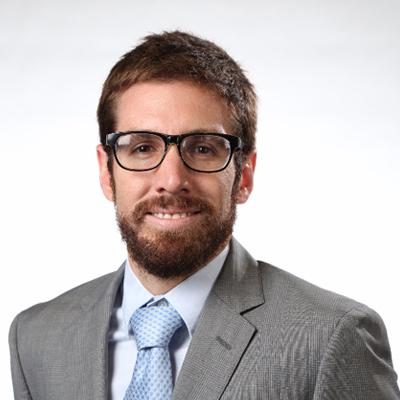
Enrique Soto, MD, is a medical oncologist specializing in the care of older adults with cancer. He works at the Salvador Zubirán National Institute of Medical Sciences and Nutrition in Mexico City, which is located on a seismic zone. He recently provided care to people with cancer and others after the city experienced a severe earthquake on September 19, 2017. Follow Dr. Soto on Twitter @EnriqueSoto8.
Approximately 218 million people worldwide are affected by natural disasters every year. We have just recently seen the devastating consequences of the wildfires that spread across California, and a couple of months ago, hurricane season filled the news with images of destroyed streets, isolated cities and towns, and shelters filled with people who had to abandon their homes. In 2017, Hurricanes Harvey and Maria caused incalculable damage in Texas and Puerto Rico, and Hurricane Florence affected several states along the Atlantic coast in 2018. In the face of any natural disaster, people with cancer—particularly those who are actively receiving treatment—need to be prepared and know how to make sure they can access necessary medical care.
Although there are some strategies for predicting and anticipating the arrival of some natural disasters, these events can still cause considerable damage to an area’s health infrastructure, such as hospitals, communication tools, and roads. People with cancer who are affected by a natural disaster may find themselves in a very delicate situation. It may be difficult for you or a family member to get the cancer treatment needed for weeks or even months after a disaster. This can be particularly dangerous for people having problems from cancer or cancer treatment, who need medication for symptoms like pain or trouble breathing, or people who require dialysis or other life-support systems.
This can be particularly dangerous for people having problems from cancer or cancer treatment, who need medication for symptoms like pain or trouble breathing, or people who require dialysis or other life-support systems.
These 5 recommendations can help you manage your cancer care during an emergency:
-
Review information issued by official government groups or reputable non-governmental organizations (NGOs). It's important that the sources you consult are reliable because rumors and “fake news” spread quickly. ASCO has a Resources for Disaster Assistance website page you can use to seek assistance in the case of a disaster. The National Cancer Institute (NCI) also has a website with emergency resources for people with cancer in English and Spanish. Social media networks for reliable organizations like these can also help you stay informed about a situation in real time.
-
Create a disaster action plan. This plan should include ways to contact your doctor or other health care providers, as well as your family members and friends. The U.S. Department of Homeland Security (DHS) provides useful resources in English and Spanish for creating a family emergency plan. If you are a caregiver, try to contact any older adult family members with cancer quickly during a natural disaster. Older adults may be especially vulnerable if they have a limited ability to get around.
-
Keep basic information with you about your cancer diagnosis and treatment. All people with cancer should keep with them their doctor’s name and contact number, their diagnosis, and the type of treatment they’re receiving. A good option is to download or order by phone the Patient Information Wallet Card created by ASCO and the NCI to help patients and doctors stay connected during a disaster. Keep this card with you at all times.
-
Keep an emergency kit on hand. This waterproof kit should include medications, bandages, a thermometer, and other medical supplies you may need. Keep in mind that water or food may not be safe to eat during an emergency. In these cases, water disinfectants or tools to boil water may be useful, as well as food items that don’t spoil or need to be refrigerated.
-
Contact your health care team as soon as possible. Quickly inform your doctors or nurses about your health after a natural disaster. They can help you avoid any medical complications and interruptions to your care. Also, contact your health insurer for information about where to go if you need medical attention at another place. For Medicare users, there’s a website with information about where to get medication or dialysis in areas affected by natural disasters in English and Spanish.
Ensuring that there’s no interruption to your medical care during and after a natural disaster is crucial for avoiding complications and difficult situations. Fortunately, there are many tools you and your caregivers can use to prepare for any scenario and to seek help, if needed.
